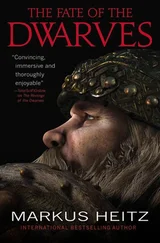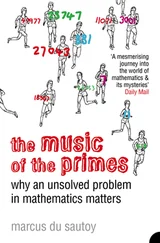Markus Heitz - The Revenge of the Dwarves
Здесь есть возможность читать онлайн «Markus Heitz - The Revenge of the Dwarves» весь текст электронной книги совершенно бесплатно (целиком полную версию без сокращений). В некоторых случаях можно слушать аудио, скачать через торрент в формате fb2 и присутствует краткое содержание. Жанр: Фэнтези, на английском языке. Описание произведения, (предисловие) а так же отзывы посетителей доступны на портале библиотеки ЛибКат.
- Название:The Revenge of the Dwarves
- Автор:
- Жанр:
- Год:неизвестен
- ISBN:нет данных
- Рейтинг книги:5 / 5. Голосов: 1
-
Избранное:Добавить в избранное
- Отзывы:
-
Ваша оценка:
- 100
- 1
- 2
- 3
- 4
- 5
The Revenge of the Dwarves: краткое содержание, описание и аннотация
Предлагаем к чтению аннотацию, описание, краткое содержание или предисловие (зависит от того, что написал сам автор книги «The Revenge of the Dwarves»). Если вы не нашли необходимую информацию о книге — напишите в комментариях, мы постараемся отыскать её.
The Revenge of the Dwarves — читать онлайн бесплатно полную книгу (весь текст) целиком
Ниже представлен текст книги, разбитый по страницам. Система сохранения места последней прочитанной страницы, позволяет с удобством читать онлайн бесплатно книгу «The Revenge of the Dwarves», без необходимости каждый раз заново искать на чём Вы остановились. Поставьте закладку, и сможете в любой момент перейти на страницу, на которой закончили чтение.
Интервал:
Закладка:
“Where is the hidden road to Girdlegard?” Tungdil asked, sitting down on the ground, while the scout started laying a fire. He could not take his eyes off the city. He had noticed high masts with ropes spanned between them carrying cages above the streets. The wind, he fancied, was bringing him new sounds and smells.
“You’d have to go back half a star course toward the west, just short of the monsters’ land. The entrance is easy to miss in spite of the bastion we and the ubariu have erected. We don’t want it looking too obvious, otherwise there’d be even more of the beasts turning up.”
Tungdil was as excited as a small child, looking forward to the orbits he would be spending here with Sirka. Not for a moment did he regret having turned his back on Girdlegard. Forever, it seemed.
“What are those cages?” he asked.
The scout blew into the fire again to bring the flames to life. Blue and green flickered up. “Must be the wood,” he surmised, seeing the dwarf’s surprise. “I’ve seen yellow and red fire too.” Then he nodded over at the masts. “That’s how we get around. We’ve got these platforms in Letefora and the transport’s really easy going in straight lines. Saves a lot of time you’d waste going on foot, specially when the roads are crowded. You can get about fifty humans in one of those cages-less if it’s us, of course. And acronta prefer to walk.”
Tungdil had spotted a bridge of titanic proportions running directly to Letefora from the mountains in the southwest. “That connects with the mines, does it?”
The scout grinned. “Only a dwarf would ask about mines. No, it’s a water channel supplying the city. There are distribution points in the city itself taking the water in pipes to the various districts.”
“And how…?”
The ubari lifted a hand. “Tungdil, let me see to my mount. Then we can talk some more. But I’m sure Flagur and Sirka will want to explain the delights of Letefora to you.” He stood up to see to the wants of his befun.
Tungdil went over to his pony, lifted off its saddle and led it to where it could graze. Then he took out paper, inkwell and a quill pen and began to make a drawing of the strange town.
The Outer Lands,
City of Letefora,
Early Autumn, 6241st Solar Cycle
T ungdil was only to have this one short fascinating insight into life in Letefora for now.
Flagur took him and his friends into town to introduce him to the ruler, who watched over the fate of his subjects from his residence in the most impressive of the buildings.
As the group rode along the broad street the gates were opened for them promptly when the sentries recognized Flagur’s standard.
The inhabitants bowed, clapped spontaneously or called out. Not understanding the words, Tungdil nevertheless assumed they were being congratulated and welcomed.
The exterior walls of the local houses were covered with a clay layer bearing ornate decorations executed by skillful artisans. Some of the houses were colorfully painted while others were duller in hue but striking because of the use of tiles and ceramic ware; there seemed to be a liking for rounded archways and window frames.
Buildings here were on a par with the standard set by his own kin, but differed from the type of houses favored by humans. Oval and round shapes were popular: many took the form of globes set half in the earth, a style not seen in Girdlegard.
Details were picked out in colored glass; mosaics showed ornamental shapes or hunting and battle scenes. On some facades there were candid depictions of the physical act of union, such as would have made Girdlegarders blush.
“Very nice indeed,” Rodario commented, trying to get a better view.
“So you still have something to learn, Fabuloso?” Ireheart laughed. He pretended not to mind this civic lack of prudishness, but he avoided looking too closely. It was not fitting.
“Of course. There are always new ideas.” Rodario smiled in greeting at some of the women passing by and when they inclined their heads in response he had a generous view into their decollete. “It’s even better to learn from a mistress of the art, of course.” He smiled at the warrior. “You know what I mean, don’t you? You favor a swift stroke, I believe.”
“Keep your smutty ideas well away from my relationship,” Ireheart warned him without a trace of humor. “I won’t have you dragging things down to your level.” His fists were clenched.
“We’ll discuss it another time, then,” Rodario conceded defeat, but winked at a passing maiden, who immediately averted her eyes.
They approached a square building that tapered off toward the top with wide staircases on each side. Above, the construction had a flattened oval shape which supported four towers.
“I’m used to great buildings, Scholar,” said Ireheart, “but this is more impressive than anything I’ve ever seen.” His eyes wandered over the stone walls. “I can’t decide whether this used to be a mountain or whether they’ve formed it out of enormous blocks of stone. There are no joins to be seen.”
They rode into a hall which was a good hundred paces square. Servants hurried over, humans and ubariu, to take care of the animals, while an undergroundling in a light blue silken dress appeared and bowed before them. Her dark brown hair was long and wavy and her skin nearly black; around her waist she wore a decorative bejeweled chain, fashioned from some unfamiliar metal.
Tungdil and Goda were astonished but tactful, while Ireheart voiced his surprise without inhibition. “By Vraccas, has she burned herself?” he asked, with much sympathy and no volume control.
Flagur laughed outright and Sirka grinned. “No, Boindil. She will have had black skin from birth. Our people come in all kinds of different colors. Not like you.”
He made a face. “What on earth for? So their enemies can’t see them in the tunnels, perhaps?”
“I can’t tell you what Ubar intended. It’s just the way it is.” Sirka answered.
“You are being rude,” Goda mouthed to her mentor. “Don’t stare.”
“Jolly good thing they don’t understand our language,” said Rodario. “Otherwise you’d have to be apologizing all the time.”
“Why? Just because I’m curious?” Ireheart shouldered his crow’s beak. “It’s difficult to imagine a dwarf wearing that pale blue. Or a deep red.”
“That’s not what I meant when I said different colors.” Sirka looked to Tungdil for help.
“So what colors did you mean?”
“Wait and see.” Flagur put an end to the conversation. “They’re expecting us.” He exchanged a few words with the undergroundling, then they followed her.
The party strode through rectangular galleries five paces high, climbed steps to a floor where the corridors were semicircular, then moved on to the next level where the walls and ceilings of the walkways had a lozenge shape. Tungdil had to ask Sirka about this.
“The building depicts our belief system, which encompasses underworlds and overworlds. Each of these worlds has a different symbol. We climb up through each of the worlds up to where the ruler of the city is; he was chosen by Ubar and is his representative.”
“So is he a god as well?”
“He is the voice and the hand of Ubar. To ignore or challenge what he says would invite punishment from the hand of the god.”
The undergroundling in the blue silk approached a gate that was five paces by three, fashioned out of polished silver and guarded by two heavily armed acronta. Tungdil, Rodario and Ireheart immediately thought of Djer n.
Round the gate was a garland of chiseled runes, and paintings of warriors and fabulous beasts. Tungdil assumed they must be the gods of the upper and lower worlds.
Читать дальшеИнтервал:
Закладка:
Похожие книги на «The Revenge of the Dwarves»
Представляем Вашему вниманию похожие книги на «The Revenge of the Dwarves» списком для выбора. Мы отобрали схожую по названию и смыслу литературу в надежде предоставить читателям больше вариантов отыскать новые, интересные, ещё непрочитанные произведения.
Обсуждение, отзывы о книге «The Revenge of the Dwarves» и просто собственные мнения читателей. Оставьте ваши комментарии, напишите, что Вы думаете о произведении, его смысле или главных героях. Укажите что конкретно понравилось, а что нет, и почему Вы так считаете.











